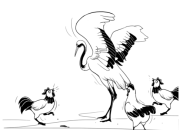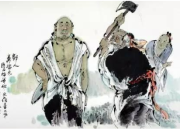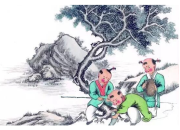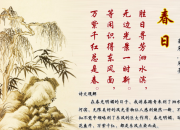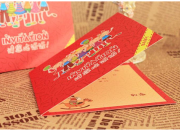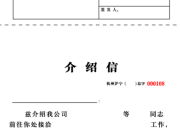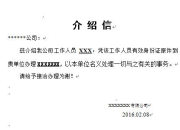辽宁省-学年高一模拟选课第二次联考英语试卷
时间:2021-08-31辽宁省2018-2019学年高一模拟选课第二次联考英语试卷
一、阅读理解
Britain’s Beautiful National Parks Offer Lots to See
Many visitors to the UK go straight to London and never explore outside the capital , which is a pity, for there is a huge variety of landscape only a few hours away, in any one of Britain’s largest areas of protected countryside, its national parks.
The Cairngorms
The biggest is the Cairngorms in northern Scotland, with some of the country’s highest mountains and the best place for skiing. Climbing and fishing are also popular, along with Scotland’s national game, golf. Wildlife enthusiasts are well rewarded this is the home of
the red deer, red squirrel and golden eagle.
The Lake District
Over the border in England is the Lake District, originally made famous by local Romantic poet William Wordsworth two hundred years ago. Crowds of people have been travelling here since 1847 when a railway was built to its biggest lake, Windermere. Children’s writers have found inspiration here too, and the mountains make for excellent walking, with breathtaking views.
Snowdonia
Wales also has its fair share of very impressive landscape Snowdonia was one of the
first national parks to be created in 1951. You will find the road signs in two languages and hear Welsh spoken in the local shops. If mountain climbing is not your thing, try visiting a castle built by a 13th-century prince, or check out the nearby beaches.
The Jurassic Coast
Covering 95 miles of the coastline from East Devon to Dorset, the Jurassic Coast is just as amazing, with rocks recording 185 million years of the earth’s history. The first underwater dinosaur(恐龙) remains were found in the high rocks here in the early 19th century.
The Giant’s Causeway
For the strangest coastal scenery of all, cross the Irish Sea to the Giant’s Causeway. Created 50-60 million years ago, the Giant’s Causeway has been a source of respect, fear and wonder through the ages. So it’s not surprising that all kinds of imaginative stories come from it.
1.If a person is fond of wild animals, which one is the best choice for him
A. The CairngormsB. The Lake District
C. SnowdoniaD. The Giant’s Causeway
2.What can you learn from the passage
A. The Lake District is a good place to create works for painting.
B. Snowdonia is the first national park to be created in Britain.
C. The first dinosaur remains were found on the Jurassic Coast.
D. You can get to the Giant’s Causeway by crossing the Irish Sea.
3.Where is the article most likely to be taken from
A. A mapB. A newspaper
C. A science bookD. A textbook
In Rio , one of the points of attraction is doubtlessly the most famous beach in the world, the Copacabana. When the weather is right the Copa becomes a stage on which everyone can play a part. Rio’s beaches, however, are bad news for swimmers. The surf is so striking. Often careless or over-courageous tourists must be pulled out of the water by a rescue(救援) team. In peak season during January and February, the helicopters of the governmental rescue organization, fly life-saving tasks from sunrise to sunset. Doctors also need to be on board when the control room reports an emergency(突发事件). The doctors and rescuers will do their best with the equipment available on board. If the patient shows no signs of recovery, the rescue team decides to fly him to hospital.
In Rio, lifesaving is a man’s job. The four-meter-high watchtowers are always manned. Alarm at tower number 5, a woman has swum too far out to sea and can’t make it back to the beach by herself. One minute later the rescue team has reached the Copacabana. From a height of ten meters above the water, Luis Carlos jumps into the sea close to the helpless swimmer. His workmates on board must keep an eye on him so that they can tell the pilot in which position to keep the helicopter. Another man is in the water now to help calm the woman down and get her ready to be airlifted. The pilot must slowly control the helicopter sideways and aim carefully. Once the net is full, the helicopter slowly flies to the beach.
The air rescue team is back on duty again. In the course of the day, there are eight more emergencies. The daily record at the end of the day reads, “nothing unusual happens.”
1.Which kind of person is more likely to have an accident in Copacabana
A. a man who can’t swim
B. a man who has nothing to worry about
C. a man who fears the sea
D. a man who was a doctor
2.When the rescuer jumps into the sea to help the swimmer in danger, the helicopter will ______
A. fly to them as close as possible
B. fly over them and wait for orders
C. fly slowly to the beach
D. fly to the hospital
3.What can we infer from the text
A. The Copacabana is a bad place for swimmers.
B. After the rescuers pick up the patient, they will send them to hospital.
C. If there is no accident, the rescue team will record “nothing unusual happens ”.
D. The helicopters of the rescue organization will fly tasks day and night.
When people go to the hospital to have a medical examination, sometimes doctors will ask them to have an X-ray or CT. What about a PET PET stands for Positron Emission.
Tomography(正电子成像素). PET scanner(s 扫描仪)create 3-D images of what is happening in the body. Scientists are devloping this medical equipment that could tell them more about the human body, and help them develop more-effective treatments for cancer, heart disease and brain disorders. It would be the world’s first full-body PET scanner.
Researchers are calling the large scanner that they are developing Explorer. It will give medical workers images of what is happening in the whole human body that have never been seen before. PET scanners now give doctors images of only parts of the body.
The U.S National Institutes of Health gave a research team at the University of California at Davis $ 15.5 million to build the scanner.
Ramsey Badawi, a professor at UC Davis, says the scanner will give researchers new information about how human organs (器官)work together.
“We’re a system of organs and all the organs interact with each other. And we’ve never really been able to get that with imaging before, and now we’re going to be able to look at that. These images help us find out and follow diseases. The new scanner will help us do that even better.”

